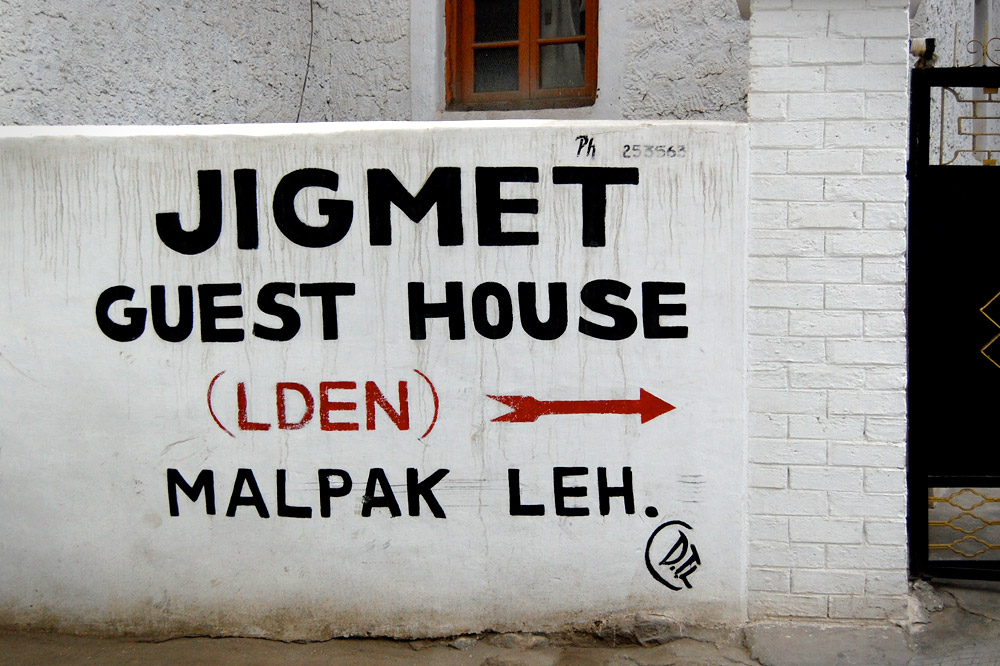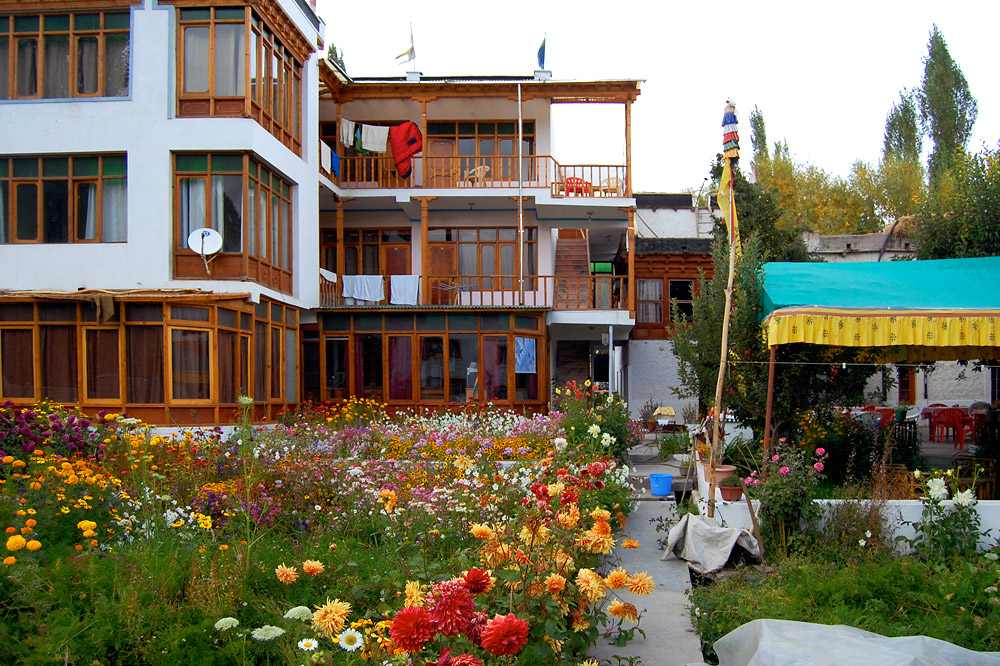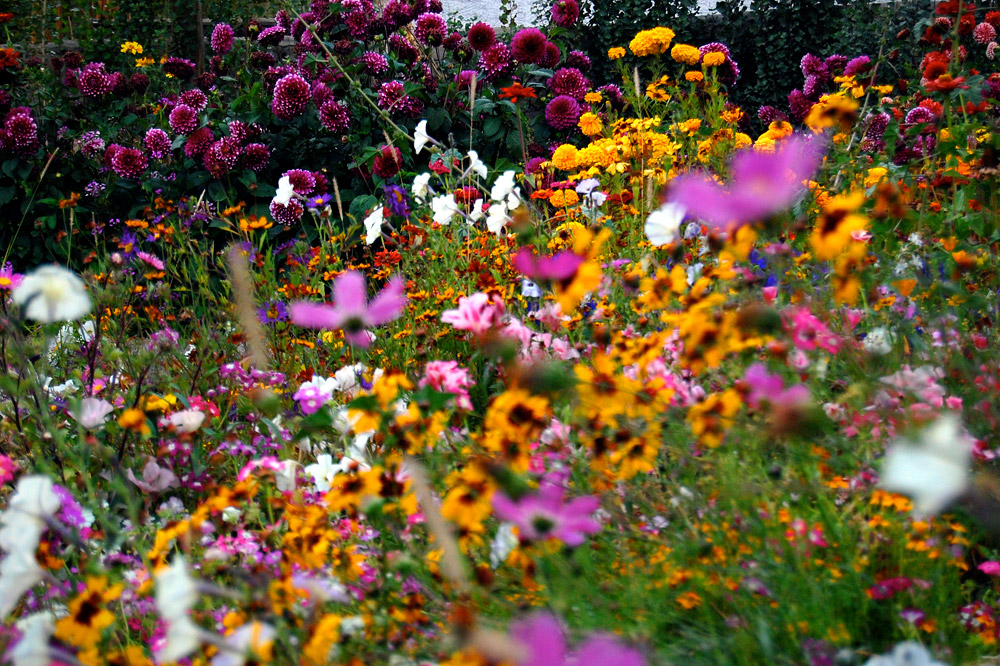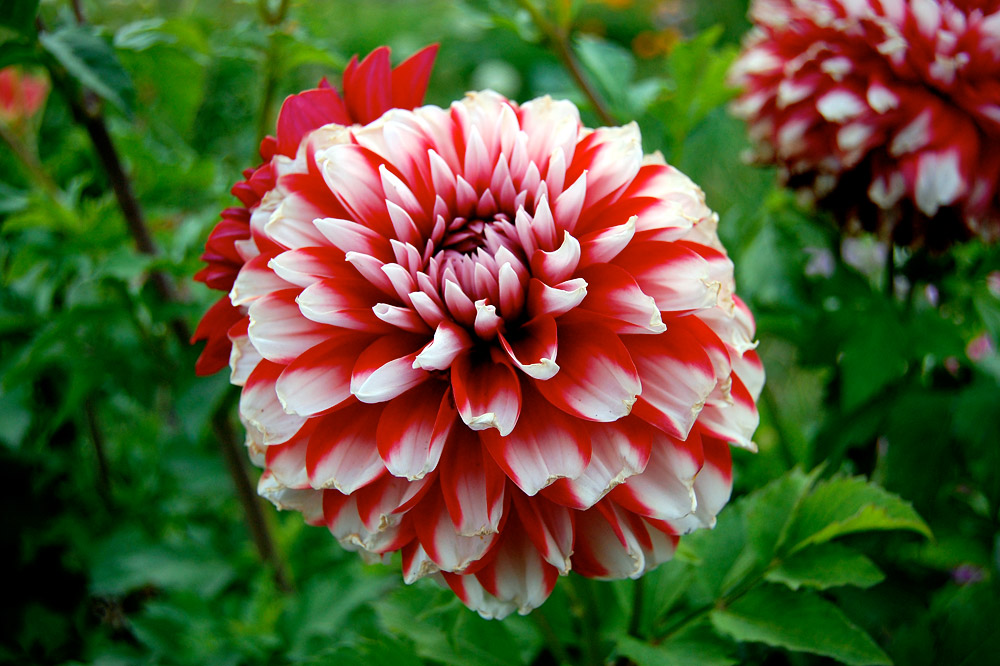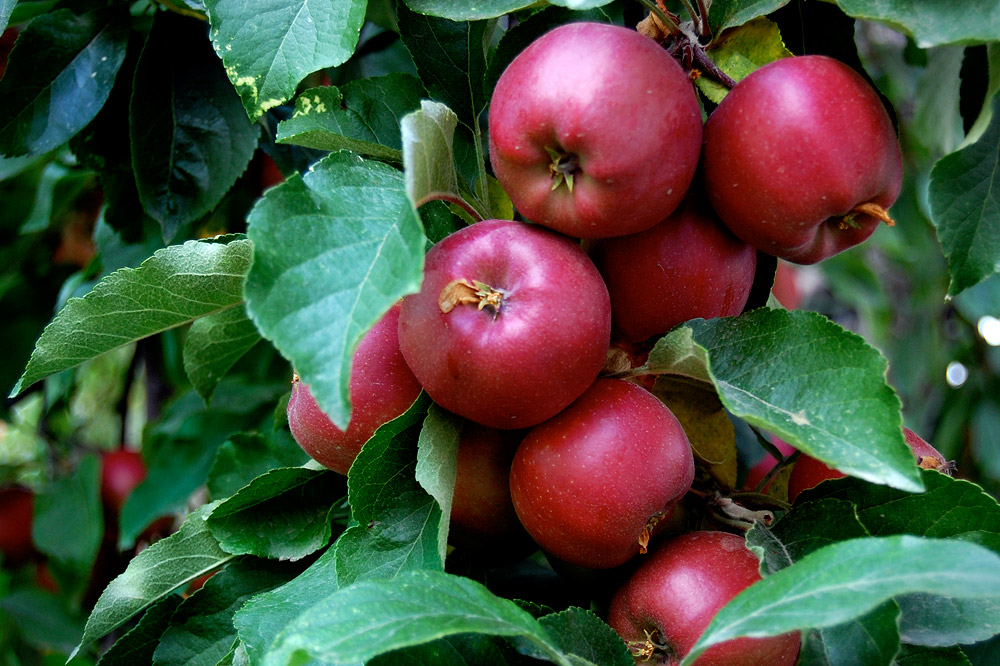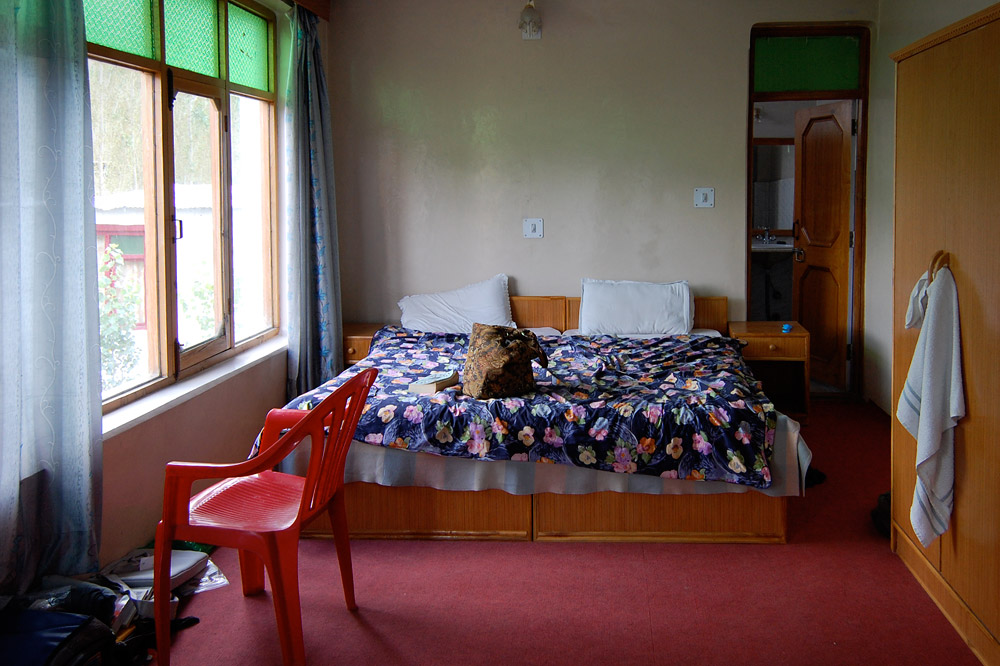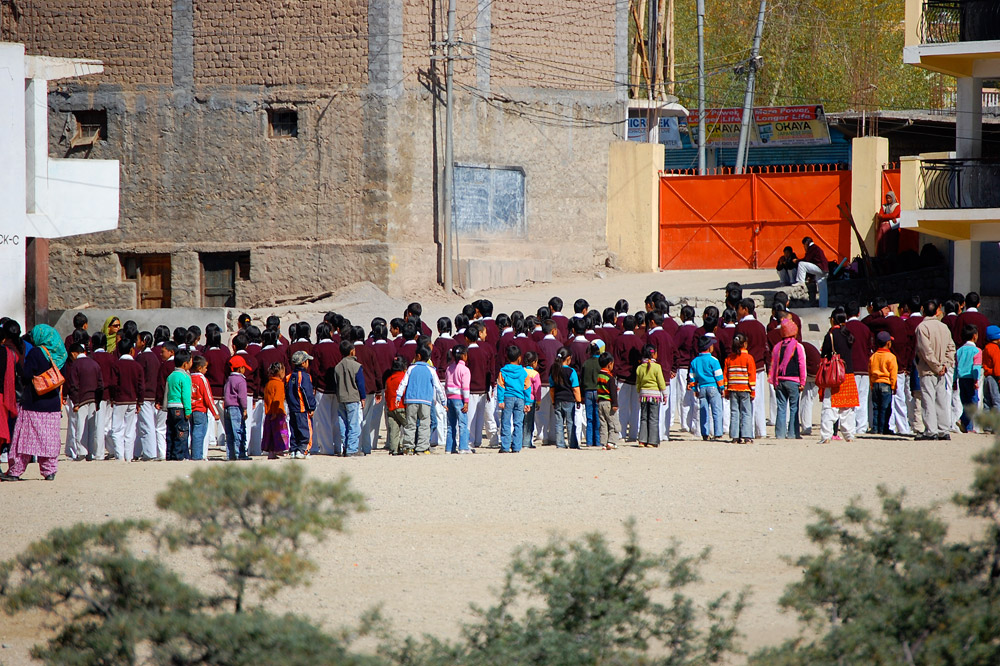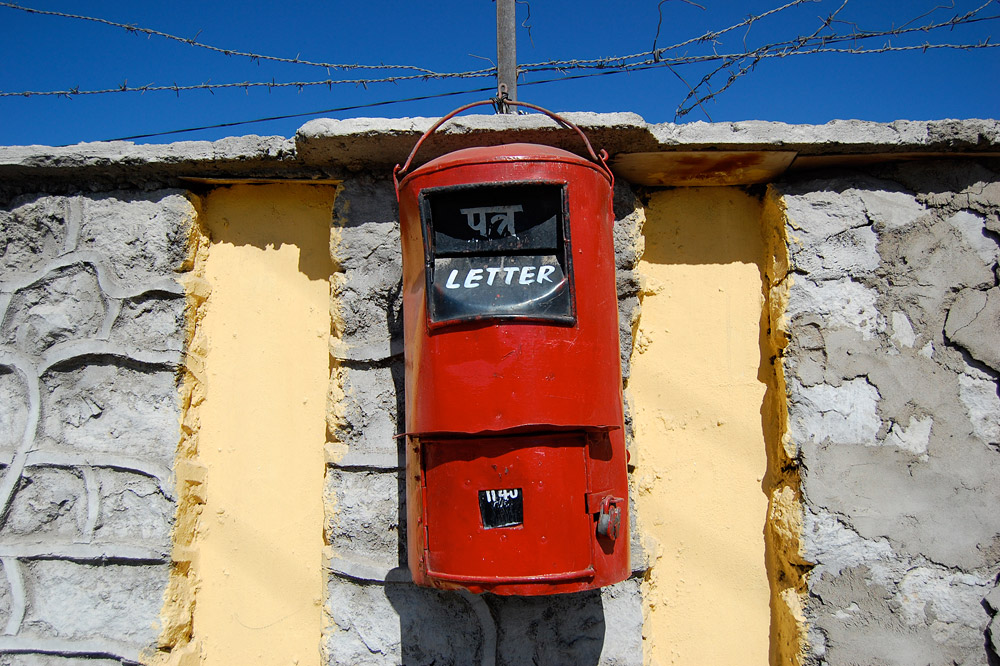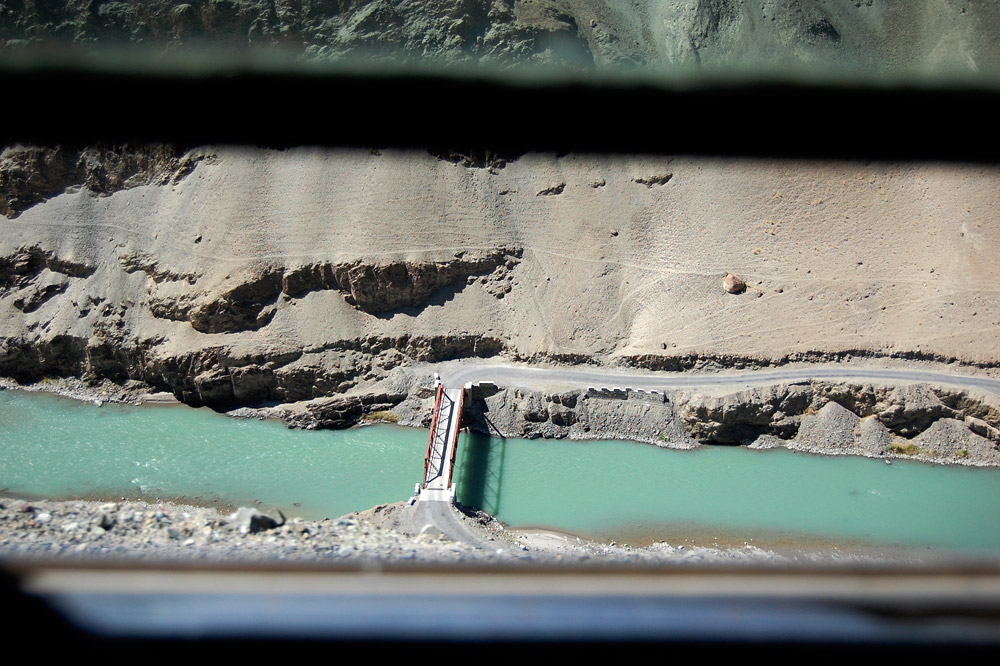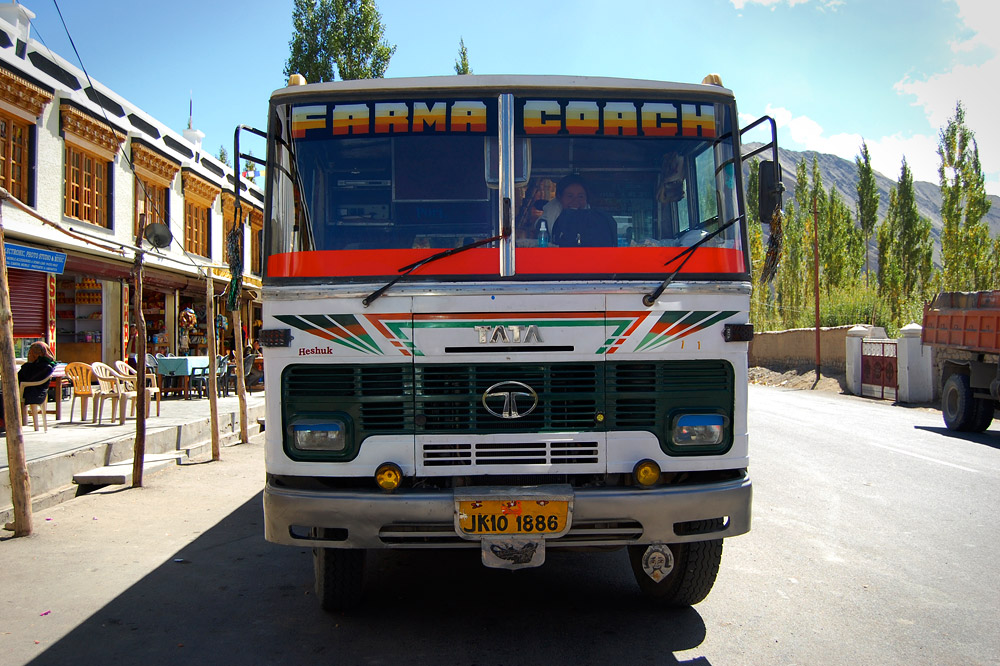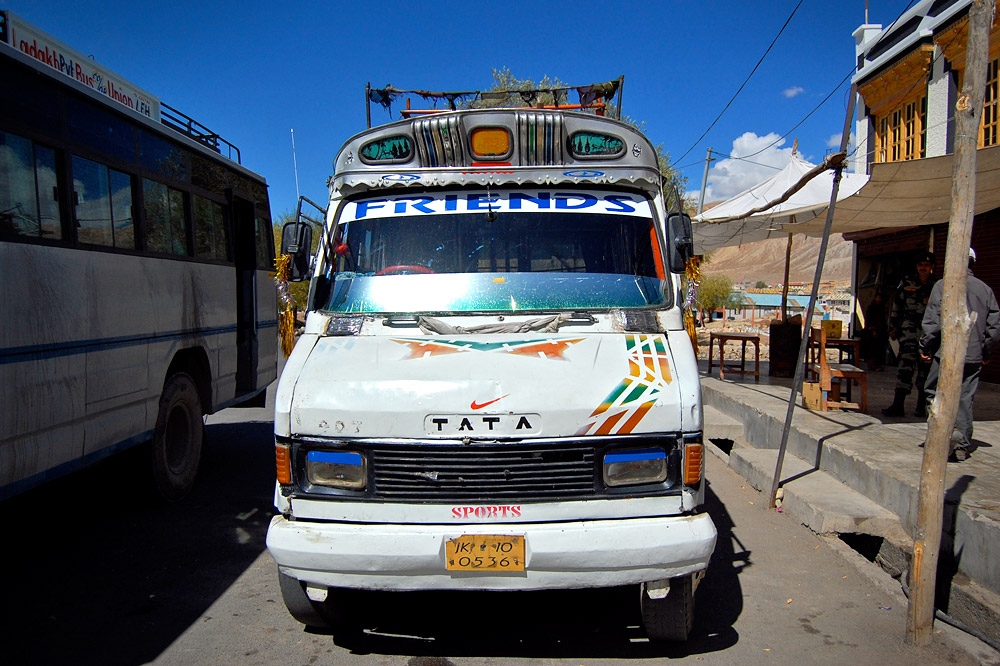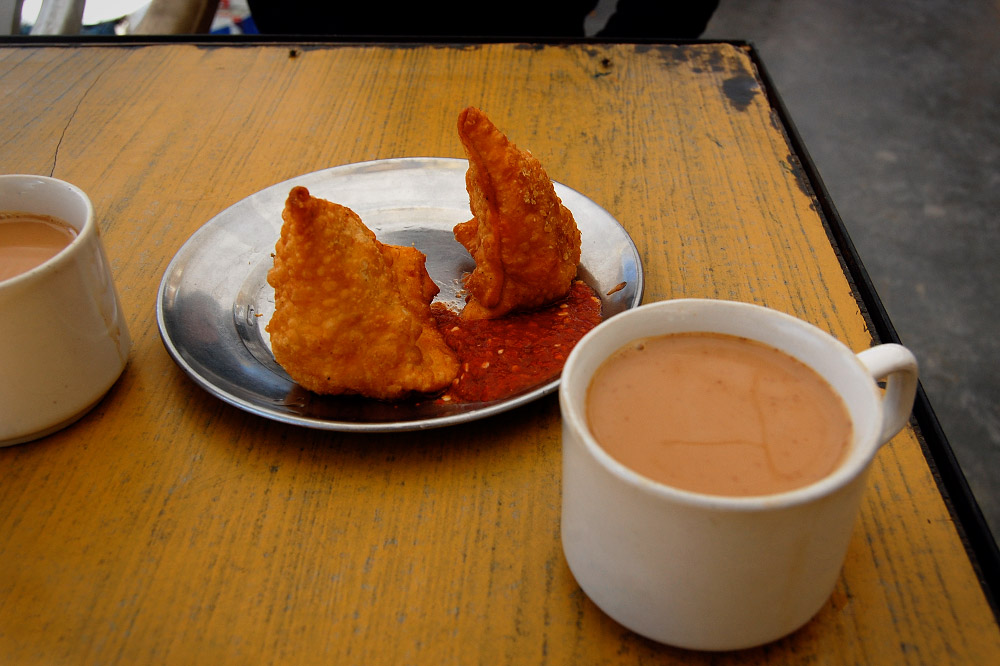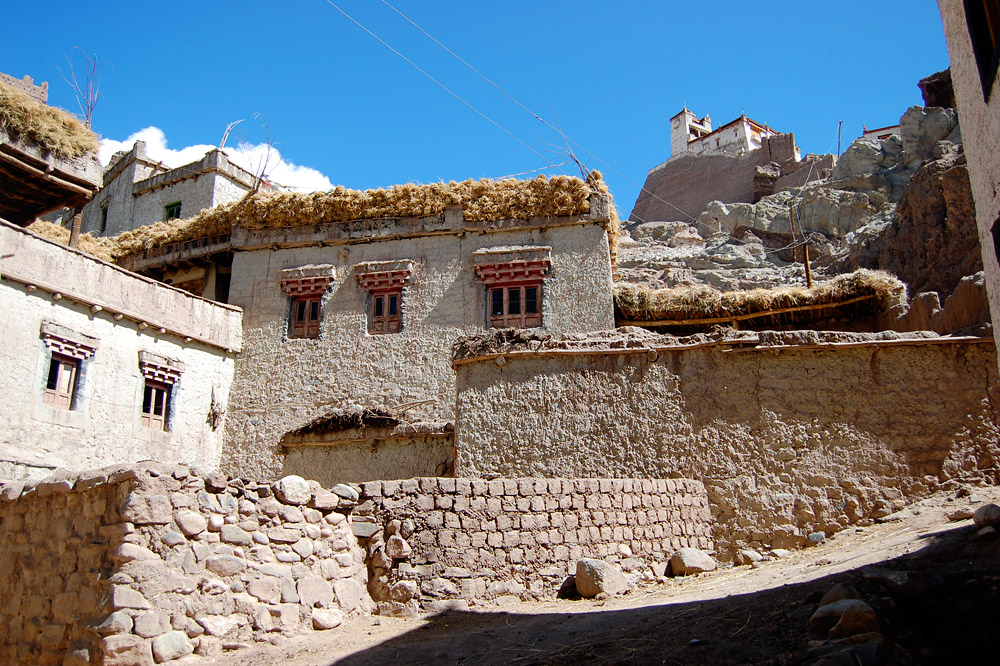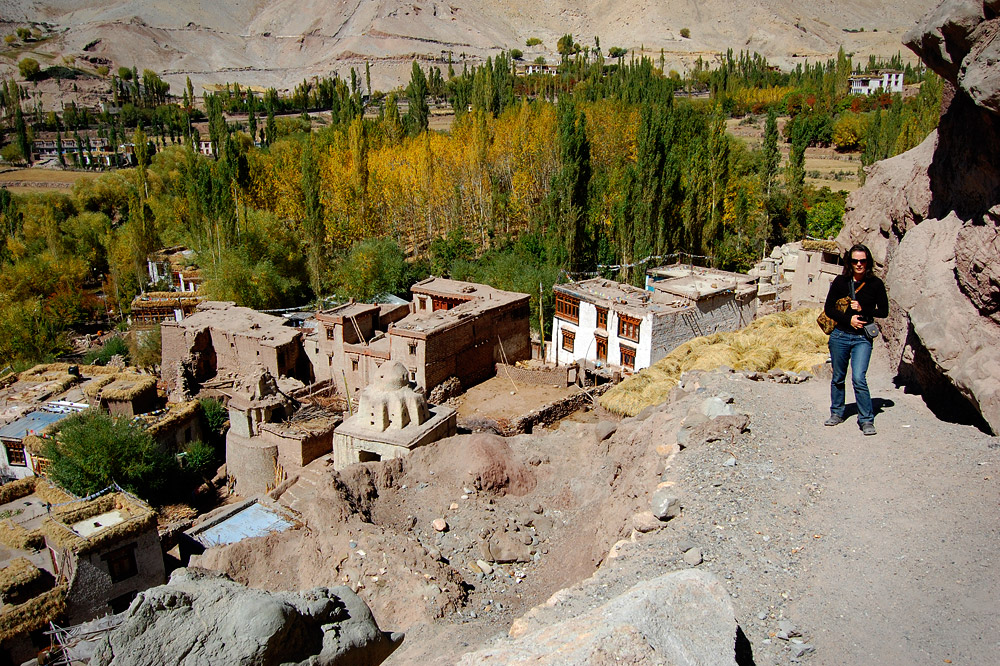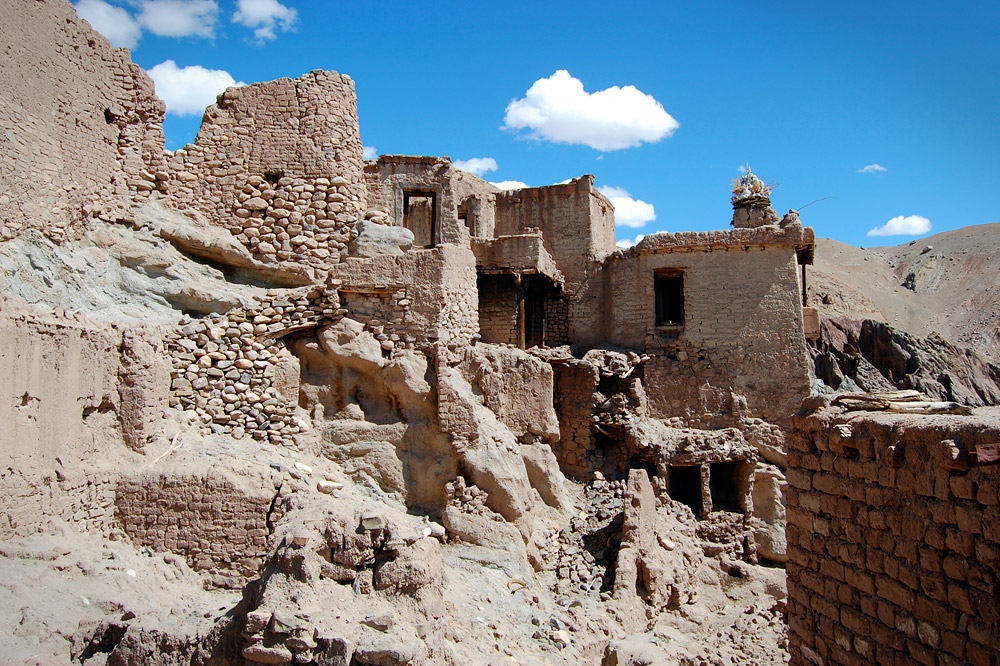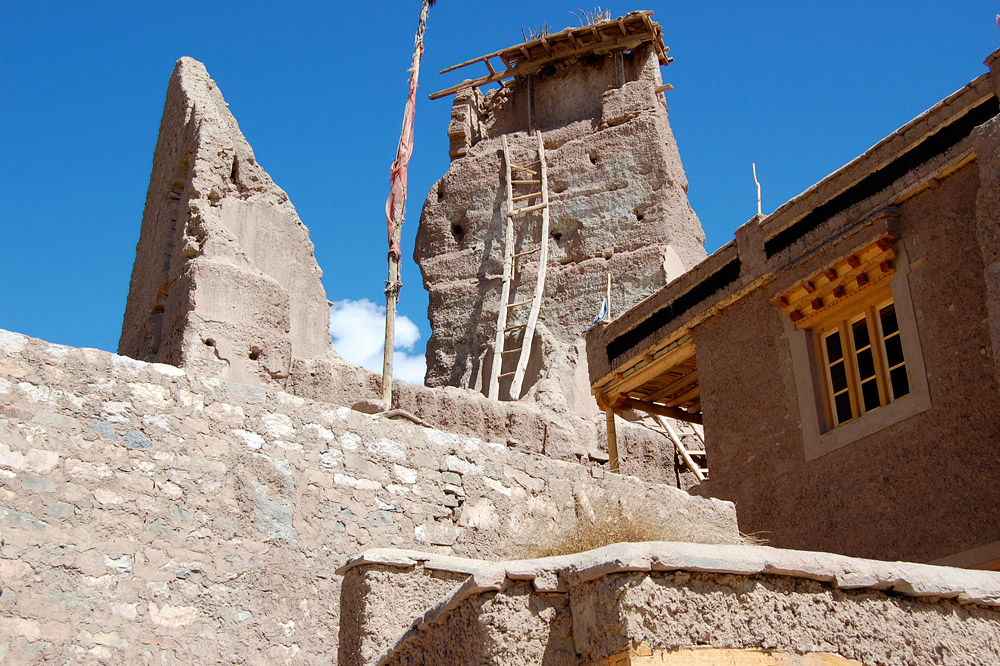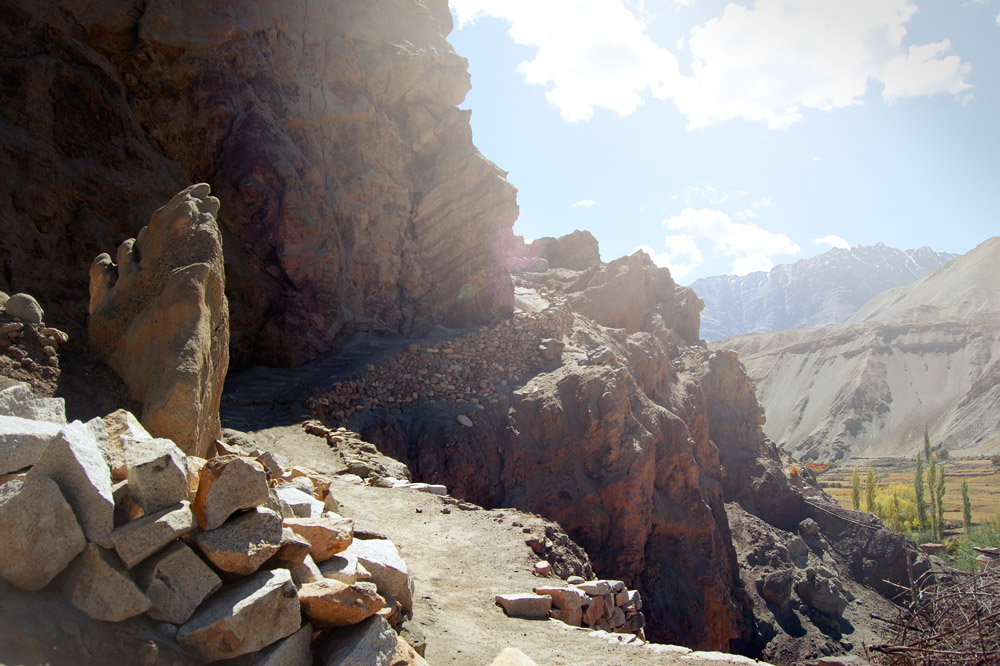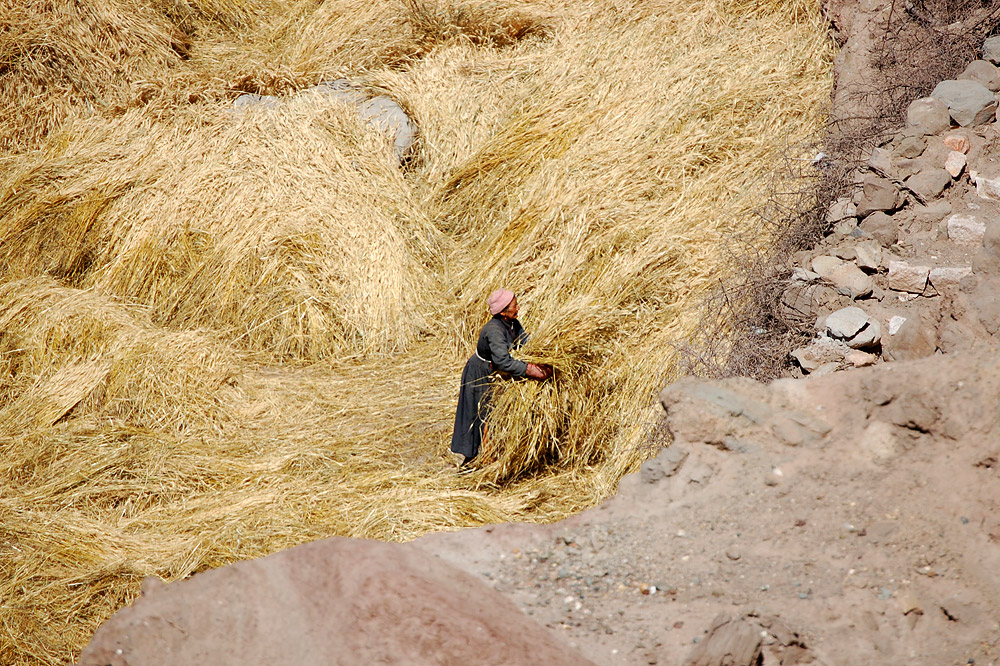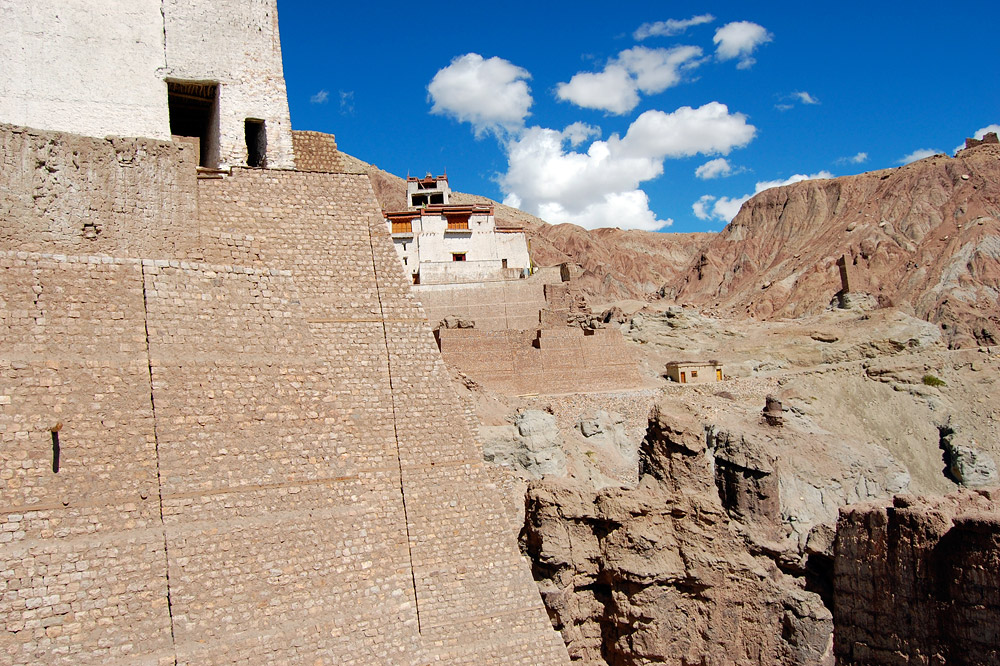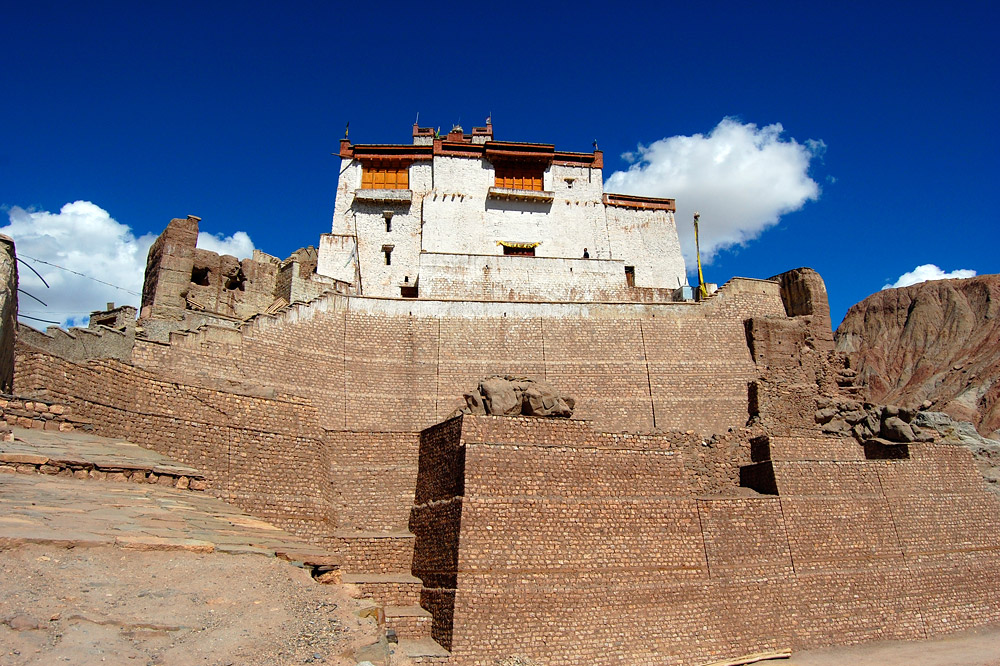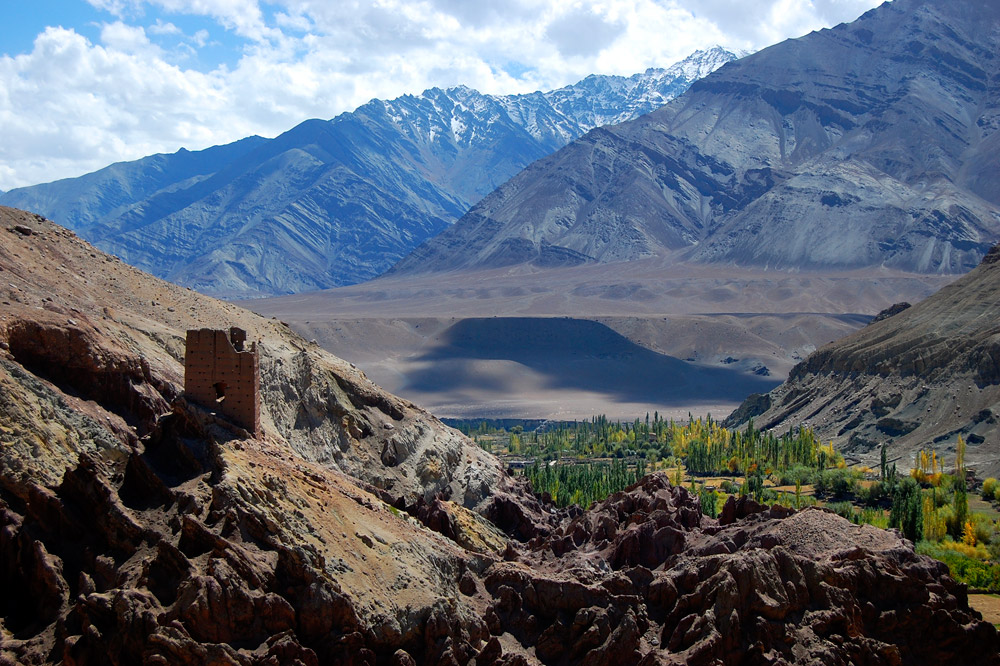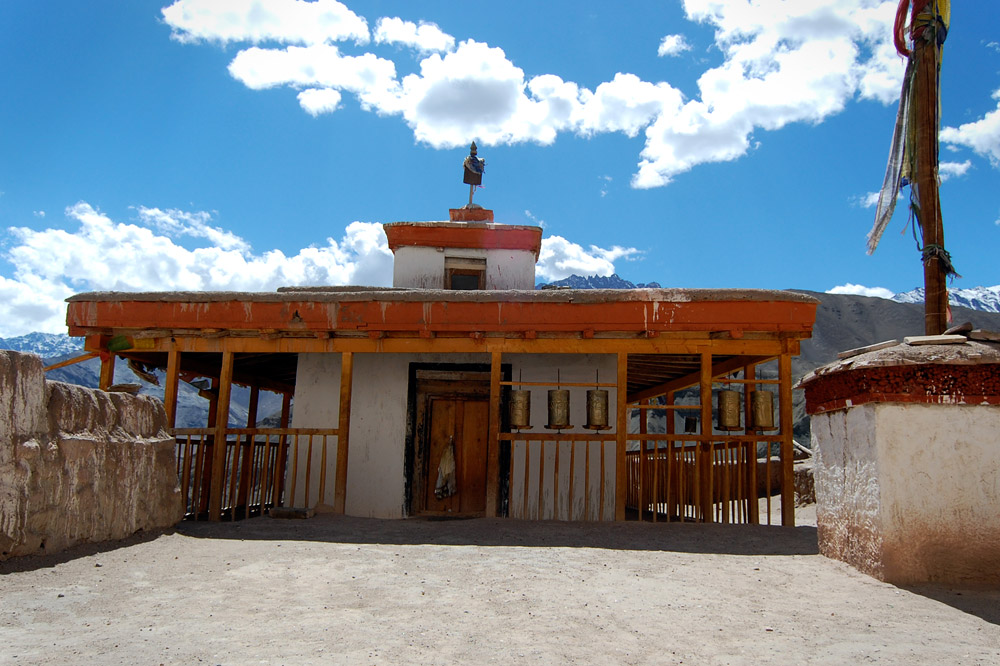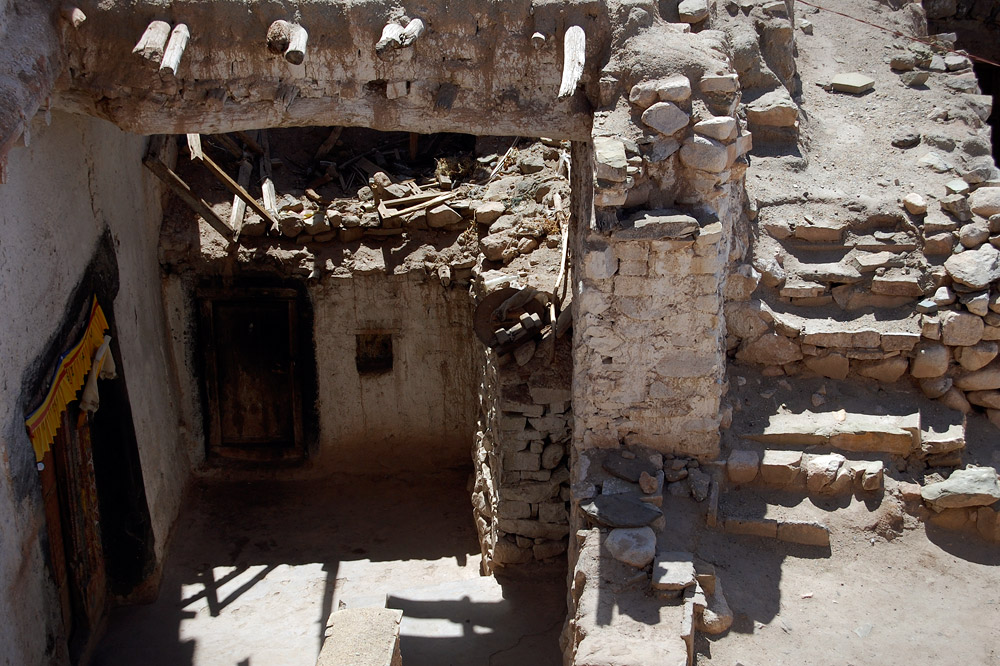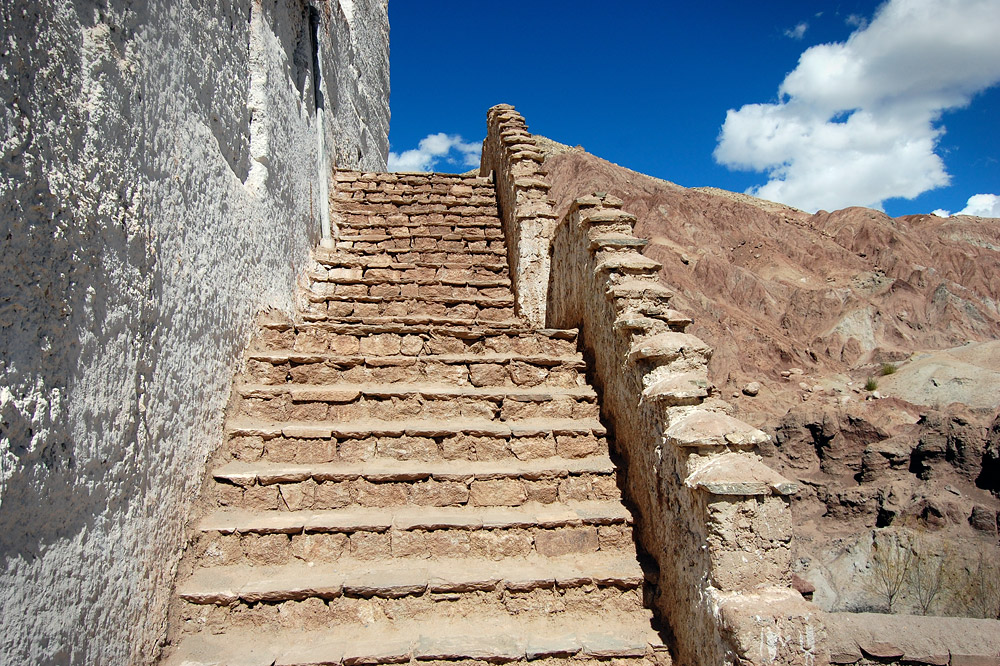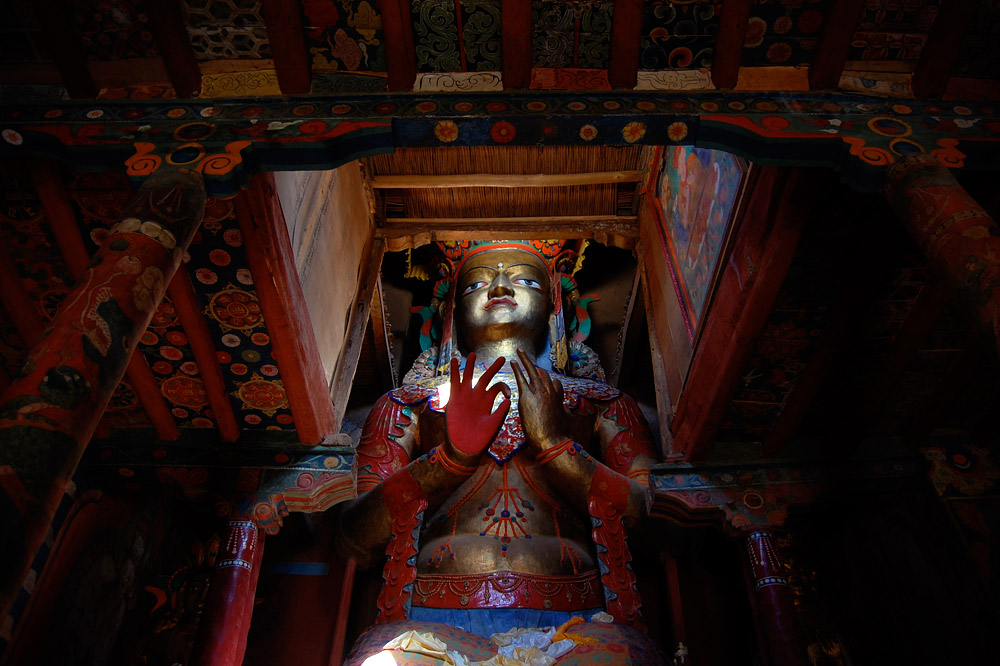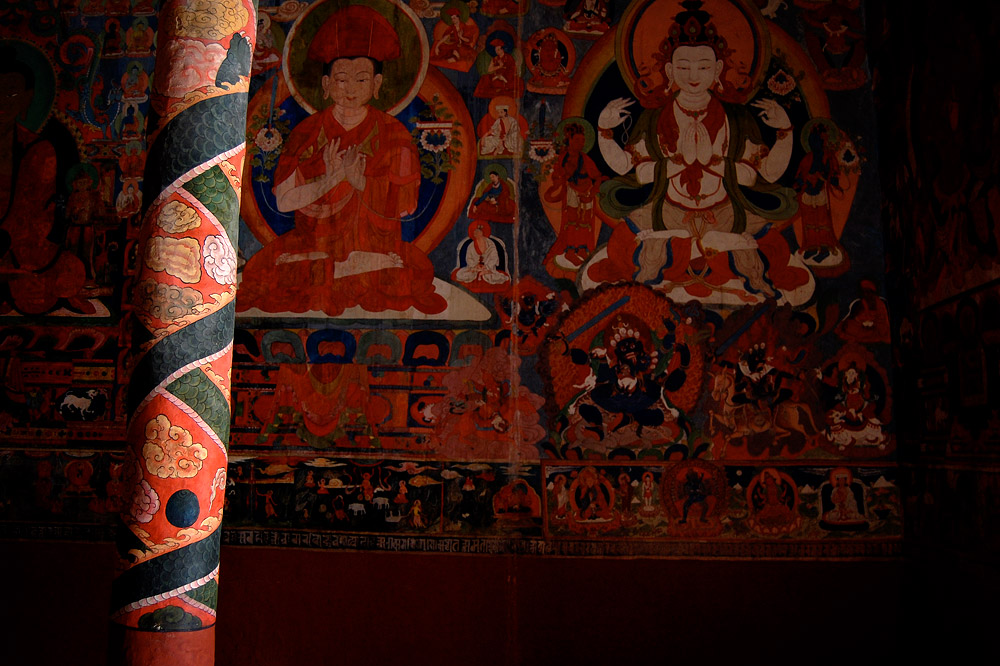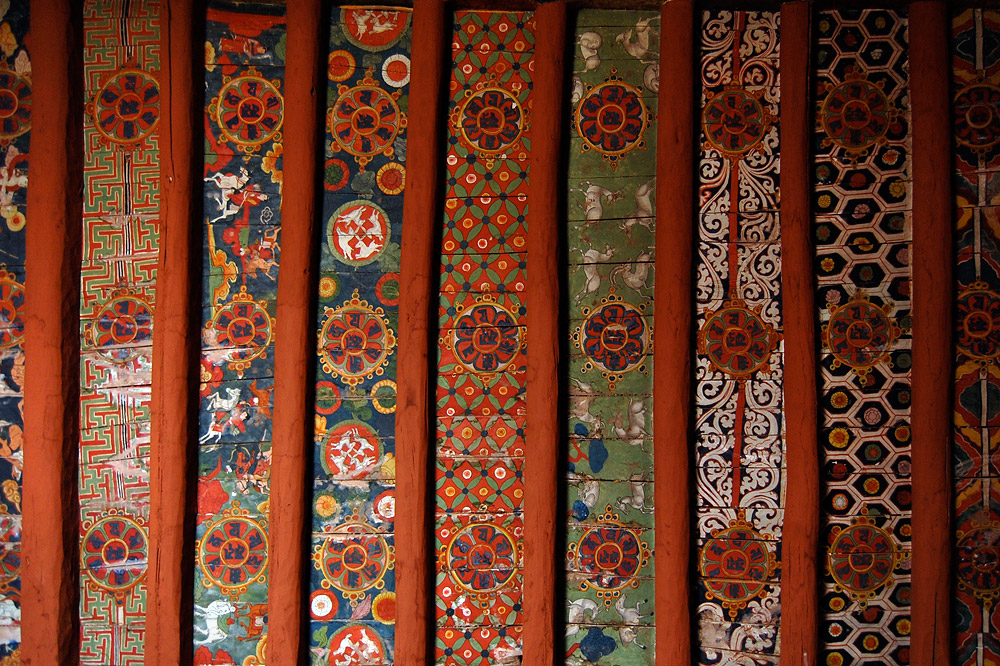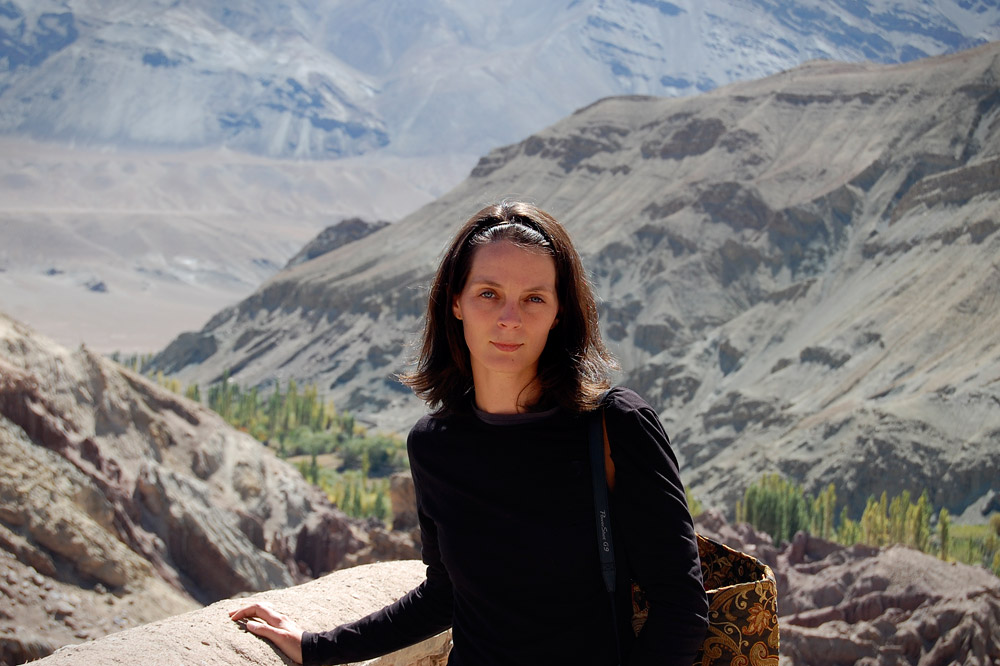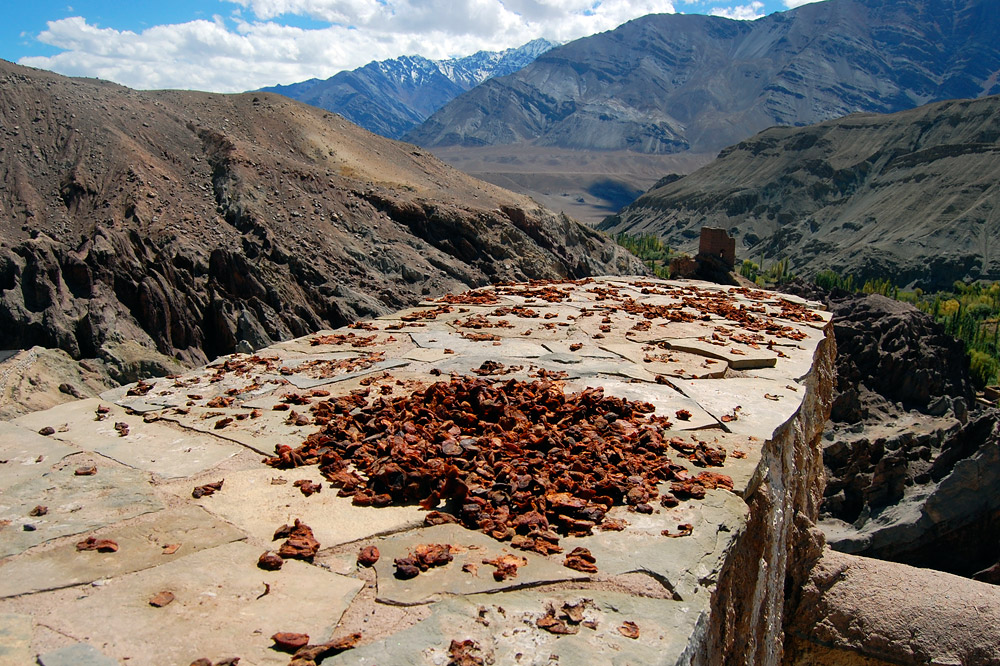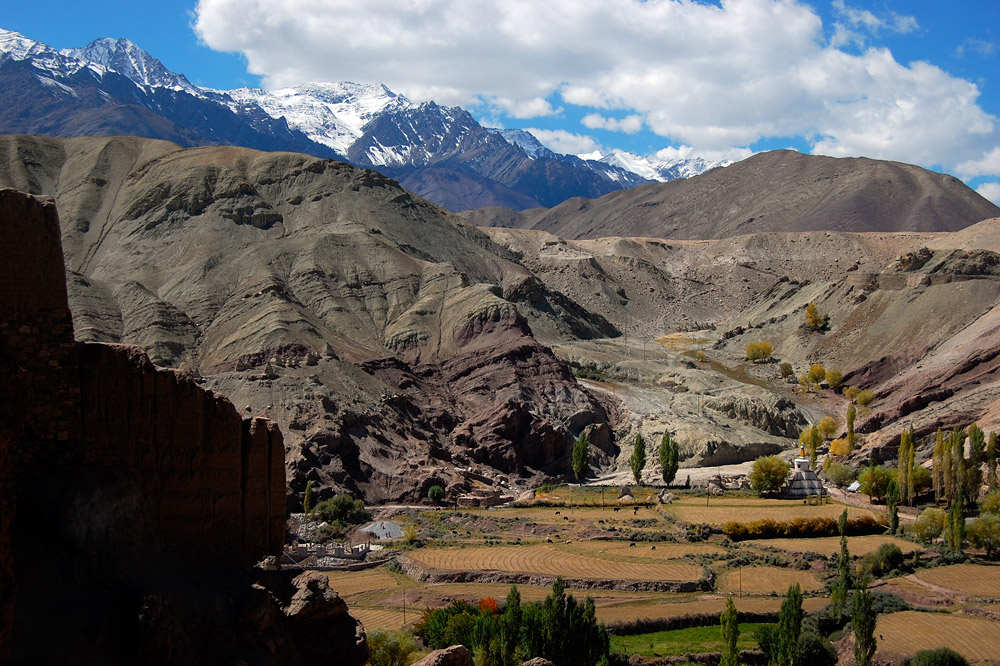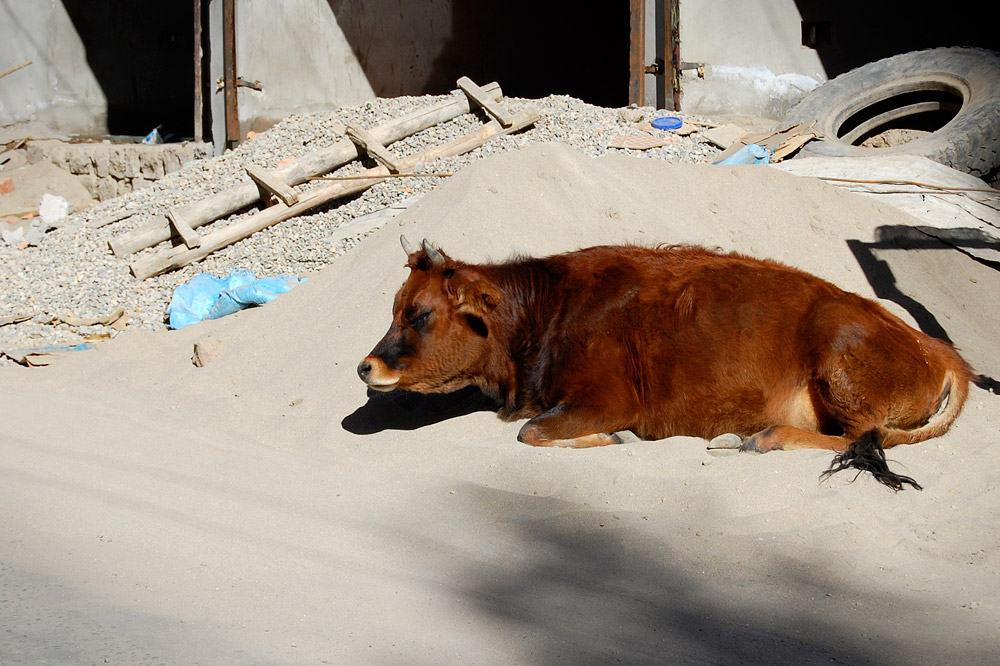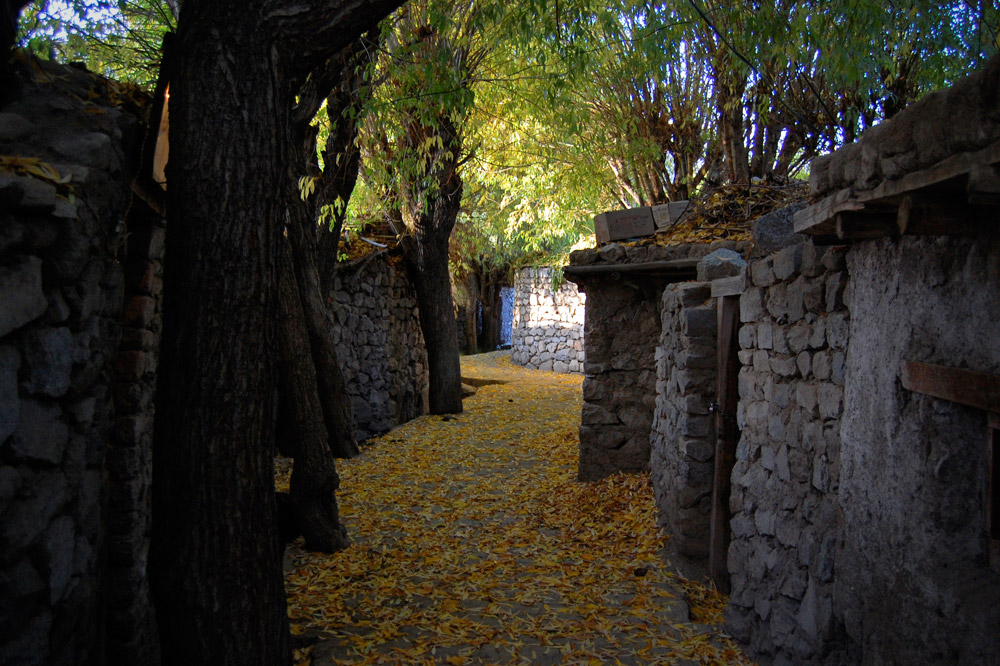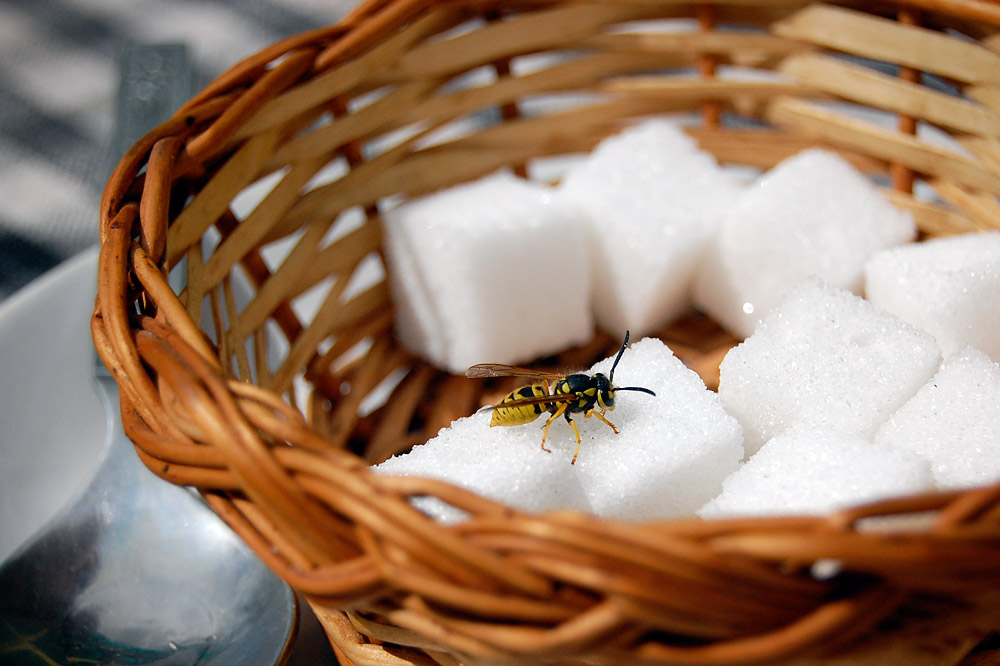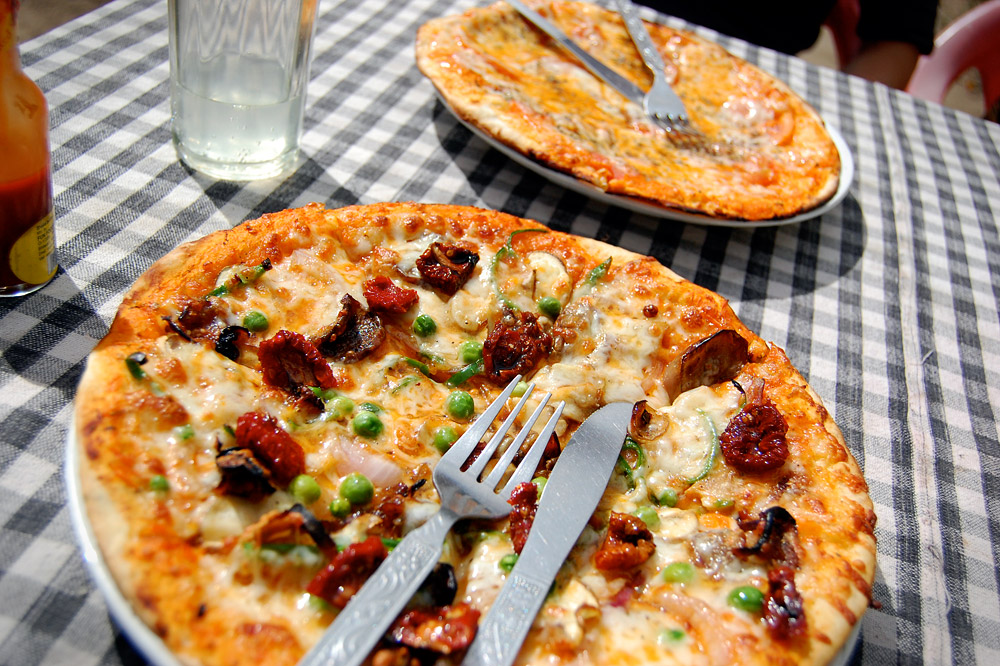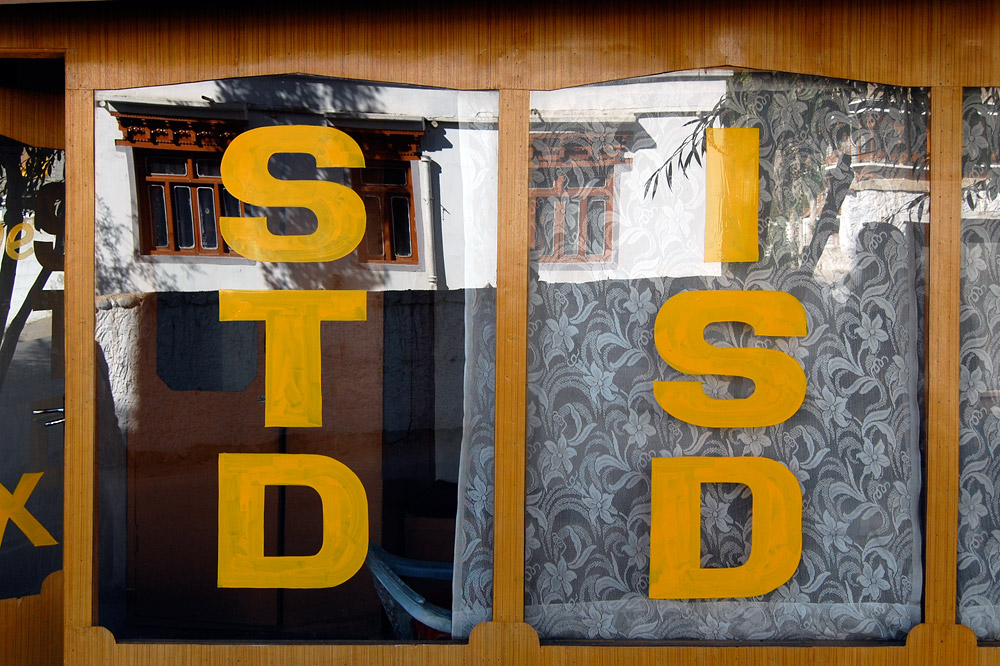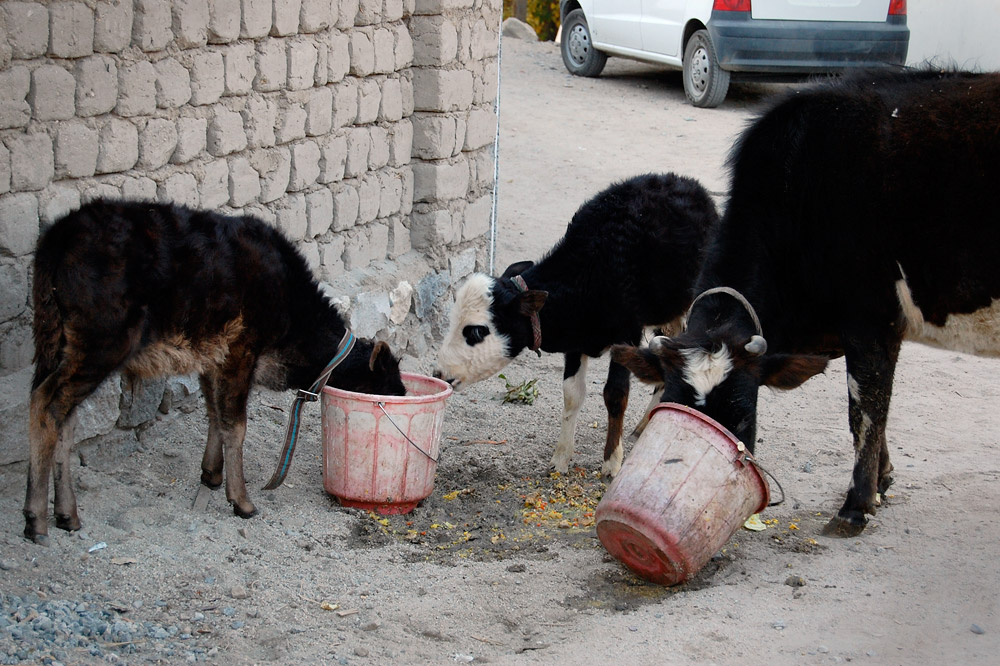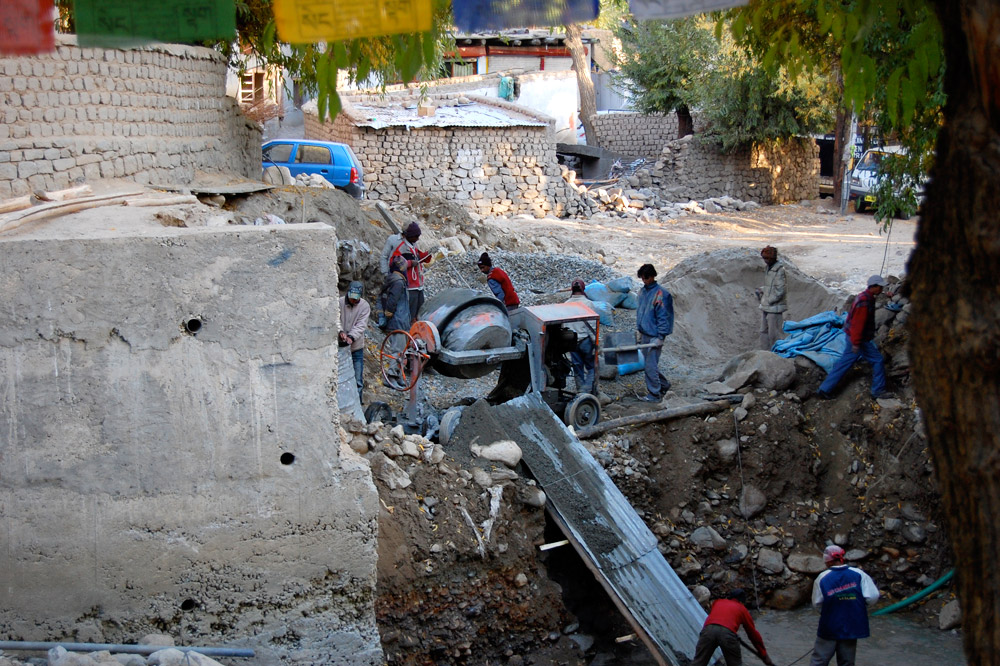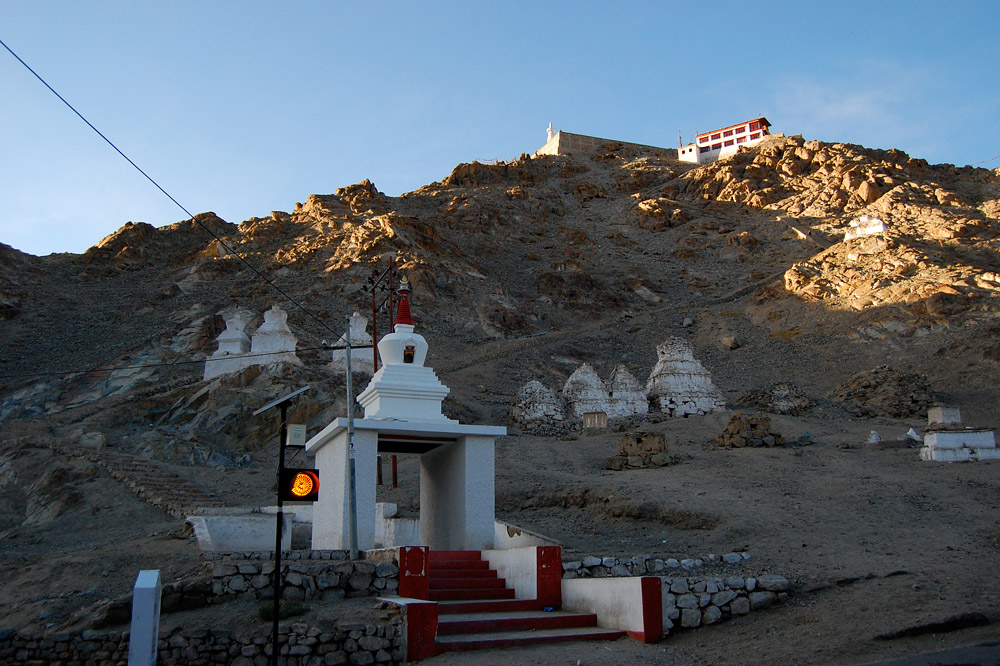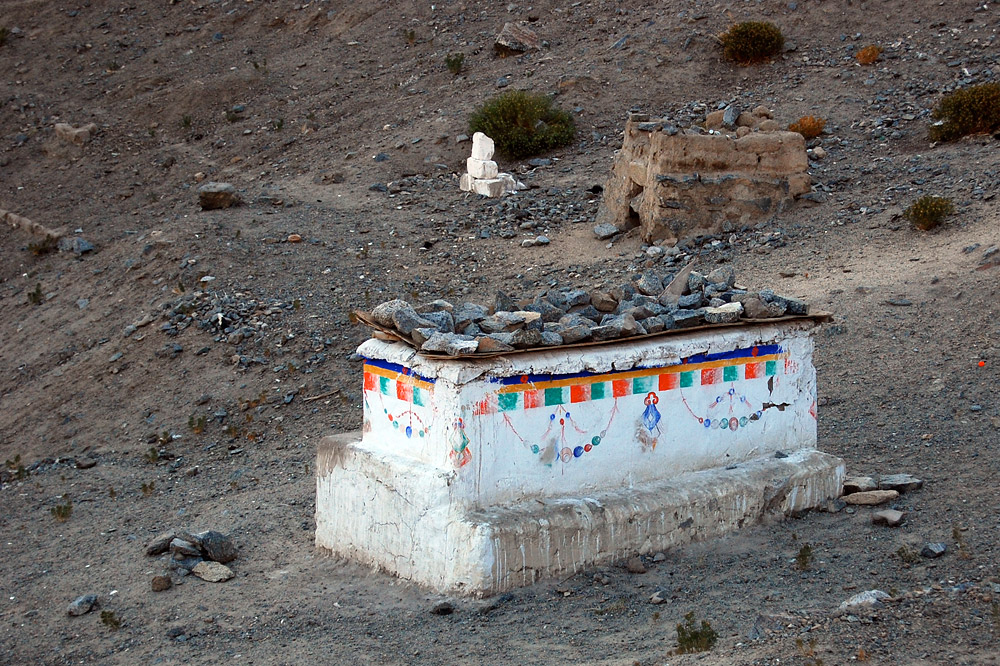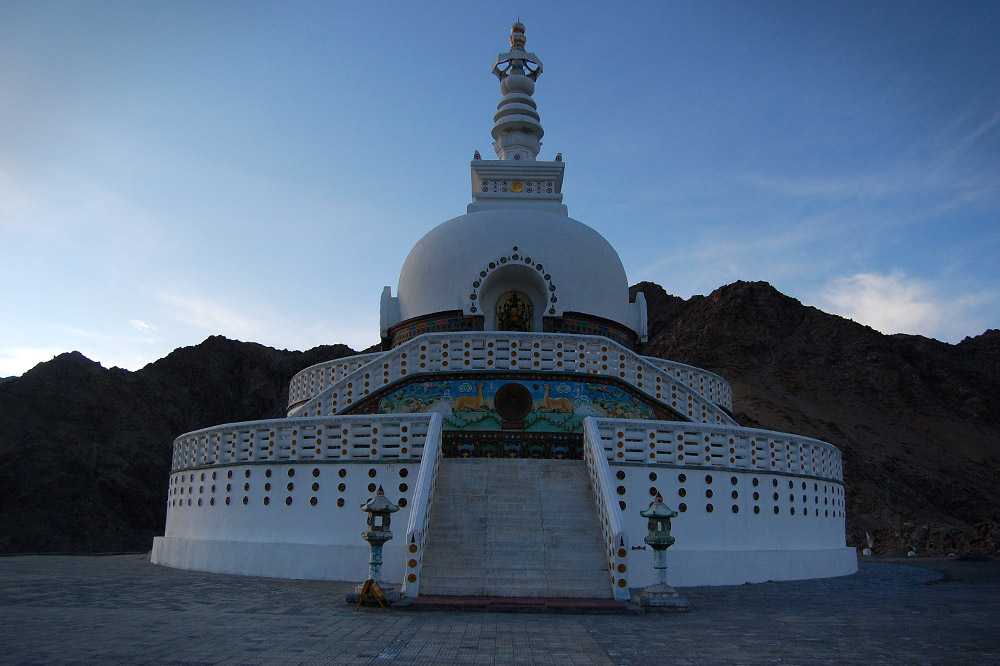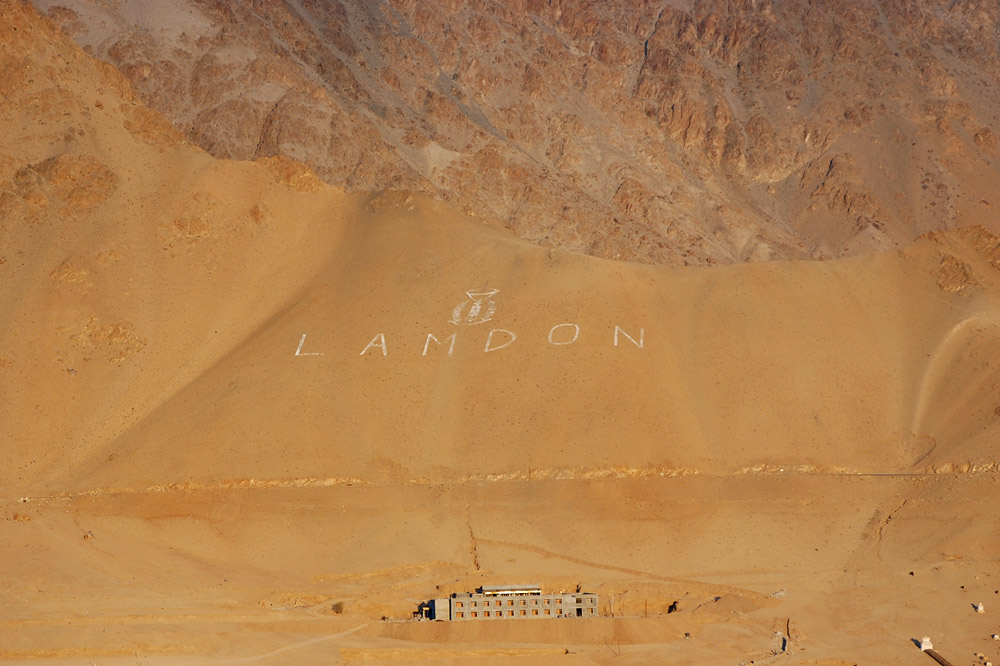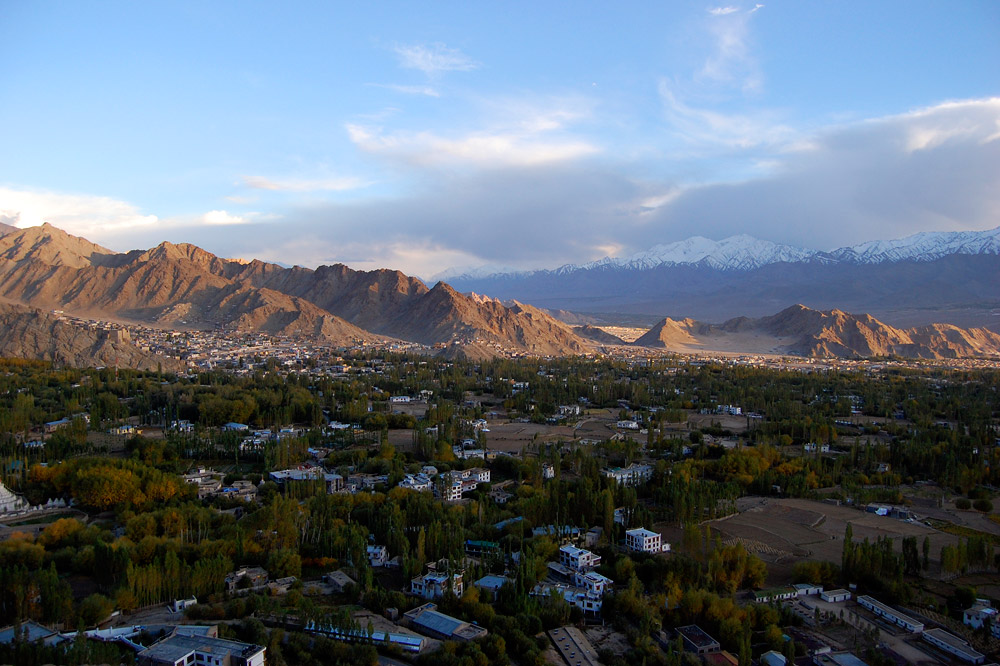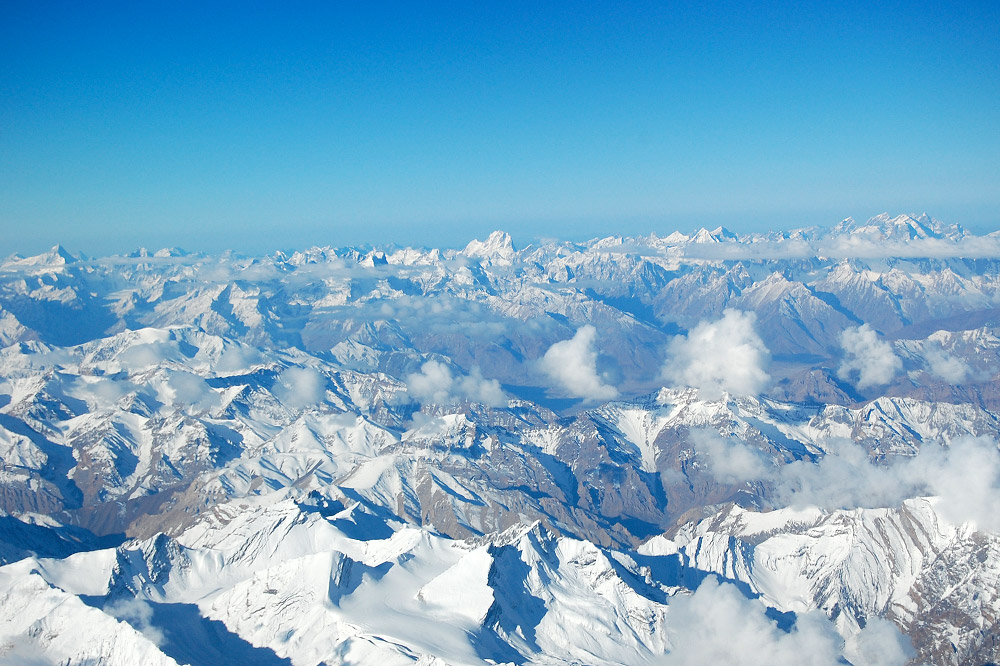Trips to Chamba Gompa and Shanti Stupa
In our final two days in Leh, J. got “double dragon” food poisoning and we saw some more awesome sights around Ladakh.
Jigmet Guest House, our new digs.
Jigmet Guesthouse.
The flower garden in back.
Big flower.
Jigmet has many apple trees full of fruit for the guests.
Our room. 600Rs($14) a night. It overlooks the garden and hills.
On the morning of the second to last day, we relaxed at the guesthouse while the sickness worked its way through. I chatted with some guests, went out to get water and crackers, and let J. rest. Around 9:30, we began our day by walking half an hour to the main road to the Leh airport.
School children lined up outside near the bus stop.
Our goal was to catch a bus to a small town called Basgo about 40km west of Leh. The bus showed up in about ten minutes, we flagged in down, and climbed inside. The fare to Basgo was around 35Rs each. Next to us sat a friendly looking old man in a boat shaped blue velvet hat and Ladakhi clothes. He appeared to be forgotten by the modern world. When he smiled, his deep wrinkles stretched dramatically.
The bus barreled down the bumpy valley road, passing endless military bases. About 10km in, it started to climb along the curving edge of a cliff. There were minimal guard rails, and it took the turns wide. On coming trucks and buses could barely squeeze by. It was an exhilarating ride that cheated death.
The main intersection where we waited for the bus.
Mailbox.
Inside the bus. Hat man on left.
An amazing window view of the Indus River.
A scary view of the river over the edge of the rail-less road.
Another view of the river.
The bus stopped for a snack break at some roadside restaurants in a “town” called Nimmu. We chatted with the ticket-master and a tall Polish guy while snacking on cheap samosas and chai tea. Four samosas and four chais cost us 40Rs($1). The driver ate a snack too, then got back in the bus and blared the horn about sixteen times. Everyone re-boarded.
Our bus named “Farma Coach”.
Rival bus.
Chais and samosas with chili dipping sauce.
Two kilometers later, J. and I were dropped off at the base of a hill in Basgo. Most of the settlements seemed empty but not abandoned. We took the steep rocky pathway up to the weathered Chamba Gompa. Once again, we were virtually alone on the trail. Only a few monks tended to the beautifully painted structures on the hill.
Structures at the base of the trail.
J on the trail.
Crumbling.
Partially restored tower.
The hillside path.
Woman stacking hay.
The two main structures rest on massive mud brick bases.
Massive.
The view of the valley from the gompa. The ruins of a citadel cap the hill to the left.
Small room containing a golden sculpture of Maitreya.
Weathered stairs.
Restored stairs.
Inside the second building is a room with beautiful restored murals and a two story golden sculpture of Maitreya.
Murals.
Motifs painted between the ceiling beams.
J. and the valley.
Drying fruit.
Valley view.
We descended and waited by the side of the road for the bus back. After half an hour it came.
The ride was crowded. Many people were bringing eggs and clanking gas canisters into town. No one bothered to open any windows, and the whole bus smelled sick of diesel exhaust and gas. On sharp turns, I’d reach out to keep a nearby canister from falling over onto the metal floor. The bus stopped and let most of the people off on the outskirts of town. It took a while for all kinds of things to get unloaded from the roof. An old lady selling produce on the street stared at me. When the bus started up again, a man ran along side and opened the rear door to jump in.
I had, once again, failed to get close to the Indus. For most of the trip it was well beyond reach in a deep valley.
Our last day in Leh wasn’t as majestic. We spent most of it in the sun playing cards and eating. My legs were still sore from all the walking the day before, so it was welcome rest.
Resting cow.
Footpath to lunch.
Sugar getting eaten by a yellow jacket.
Some bland pizza that may have been the food poisoning culprit. We shared, but I didn’t get sick. Another culprit could have been cheap Indian food for dinner, but we shared that as well and I felt no ill effects.
All over India are signs for STDs. STD is an acronym for some kind of telecommunications service, but it’s still funny. It makes it seem like there’s a skank epidemic going on here.
J. wanted to go on a hike across town to see Leh valley at sunset. By the time she convinced me, the sun was close to setting. We hightailed it 2km to the base of the hill containing Shanti Stupa. This stupa was built in the seventies by Japanese monks to promote world peace. Seems like it worked. Good job, monks.
Street cows that were being fed. A rare sight.
Construction crew rebuilding a bridge over a rocky stream. The route was only open to pedestrians via a rickety metal bridge.
Shanti Stupa is an exhausting climb up a hillside of steps. Trying to beat the night, we practically passed out from the climb.
View of the steps.
Sarcophagus.
Shanti Stupa.
A hillside message bathed in light.
Beautiful Leh Valley.
With heavy hearts and tired legs, we left Leh early Sunday morning. I will miss it.
Over dinner the night before, we had a long conversation about life and travel with an old German man. He’s an avid adventurer, having seen a lot of the world in the past 30 years. The discussion brought up a lot of pressing questions about what to value in life, how time is precious, and that traveling can be a lifetime pursuit–and not just for the two weeks a year that the American workplace wants you to accept. When I think of how little time two weeks is, I want to wretch. This is a first world problem, though. I’m grateful I even can complain about vacations when plenty of people have much bigger concerns.
Goodbye, Himalayas.
I could never be that German man. Despite all the wonderful things he’s seen, his life seemed lonely. And while I fear “settling down” somewhere, I’m equally afraid of forever feeling lost.


